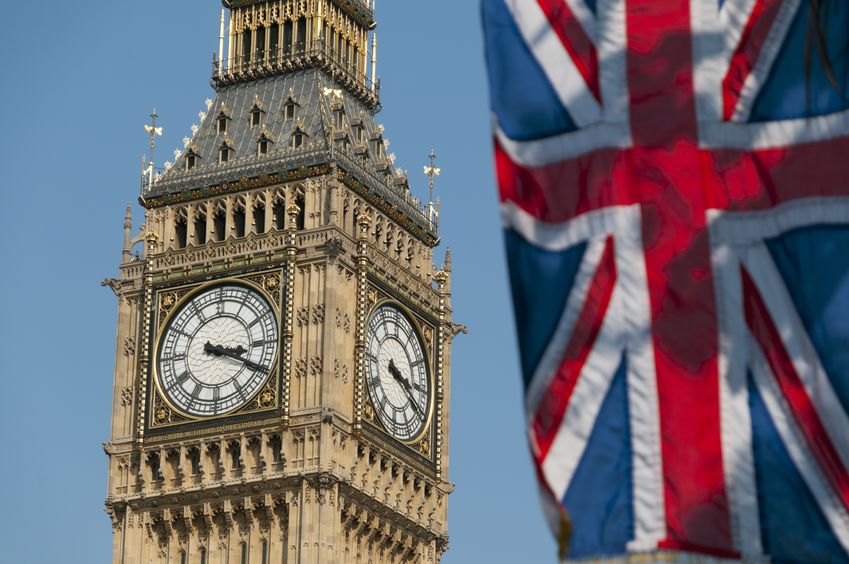
Britain has today voted to leave the European Union in a referendum that will send shockwaves across Europe, if not the world.
London and Scotland voted strongly to stay in the EU but the remain vote has been undermined by anti-EU results in the north of England.
It is the greatest disaster to befall the EU in its 59-year history. The road ahead is unclear, no state has left the European Union before.
But what does this mean for the British agricultural industry?
For now, it is simply too early to say, but there is plenty of speculation from past comments made by prominent Leave campaigners.
Below is a collection of thoughts, comments and analysis from segments of prominent pro-Brexit industry leaders, politicians and farmers.
'Farmers would get same amount of money from subsidies after leaving the EU'
Boris Johnson has complained about the burden of EU regulations that protect consumers from sheep disease similar to BSE entering the human food chain.
The former mayor of London has told farmers he questioned the need for rules that mean spinal tissue has to be removed from sheep with more than two big teeth, as he promised Brexit would bring about deregulation of the farming industry.
Speaking at a cattle market in Clitheroe, Lancashire, he said farmers would get the same amount of money from subsidies after leaving the EU while being relieved of red tape.
"We want to lift the burden from UK farming. I’ve just been talking to people about the rule that says if your sheep has two teeth or more than two big teeth you’ve got to slaughter it in a certain way to remove the spinal tissue. What is the point of that? It’s way out of date.
"You don’t need it. But because it comes from Brussels, we cannot change it and we cannot reform it."
'UK government will give more to farmers than they did in EU'
Defra minister George Eustice has also been a vocal supporter of a Brexit scenario.
He said the UK government will give more to farmers than they do now in the event of Britain leaving the EU.
Eustice has drawn attention to non-EU nations like Switzerland and Norway and how their governments give more to farmers than the UK does.
"Where power has been ceded to the EU, we see inertia, inconsistency and indecision," the Farm minister said.
"The achievements we cherish most of all are those where we have secured opt-outs from EU initiatives."
Eustice said the UK gives money to the EU, which they convert into foreign currency creating unnecessary exchange rate risks.
'Free from EU directives and subsidy policies'
Former Defra minister Owen Paterson has said that British farmers in the UK would benefit leaving the European Union, as they would be free from EU directives and subsidy policies.
Paterson said money could be better used in a targeted and efficient manner.
"I believe that the United Kingdom has a great future beyond the political arrangements of the European Union," Paterson said at the Oxford Farming Conference.
"Agriculture and food production is hampered by our membership of the Common Agricultural Policy.
"CAP negotiations between 28 countries inevitably mean that we have to accept compromises, these are at best deeply unsatisfactory and at worst actively damaging to UK farmers."
'53% of all UK exports go to non-EU nations'
The Chairman of JCB Lord Bamford has written to his company's 6,500 UK employees to explain why he favoured a Brexit scenario.
In the letter he said he was "very confident that we can stand on our own two feet".
He also said that more than 53% of all UK exports go to non-EU nations, warning that the EU has a shrinking share of world trade.
The businessman says he supported joining the Common Market but did not back it turning into a political union.
Lord Bamford told his employees that the referendum's outcome "will determine the future of our country" with a "lasting impact on the lives of our children and grandchildren".
"CAP negotiations between 28 countries inevitably mean that we have to accept compromises, these are at best deeply unsatisfactory and at worst actively damaging to UK farmers."
Leaving the single market 'wouldn't be a disaster'
UKIP MEP Stuart Agnew claimed that EU regulation only added cost to British farming, and insisted that even within the EU there wasn't a level playing field.
"There are still caged hens and sow tethers out there," he said.
"The future within the EU is far from certain, with tremendous concerns over the Euro, EU growth, and middle Eastern migration. This project is failing."
But leaving the single market wouldn't be a disaster, said Agnew. "We export a lot to China and they're not in the single market.
"We also import far more goods from the EU than we export to them – there's a deal to be done here."
'Transformational' for Welsh agriculture
The Welsh Conservatives leader Andrew Davies has claimed a Leave vote would be 'transformational' for Welsh agriculture.
Support packages for farmers would be tailor-made for the industry in Wales, which would benefit from new, fresh thinking, he said.
He added: "The established unions may have taken a position against leaving, but they were very strong advocates of Euro.
"As much as they don’t like to be reminded of it, they were wrong then and they’re wrong now."
